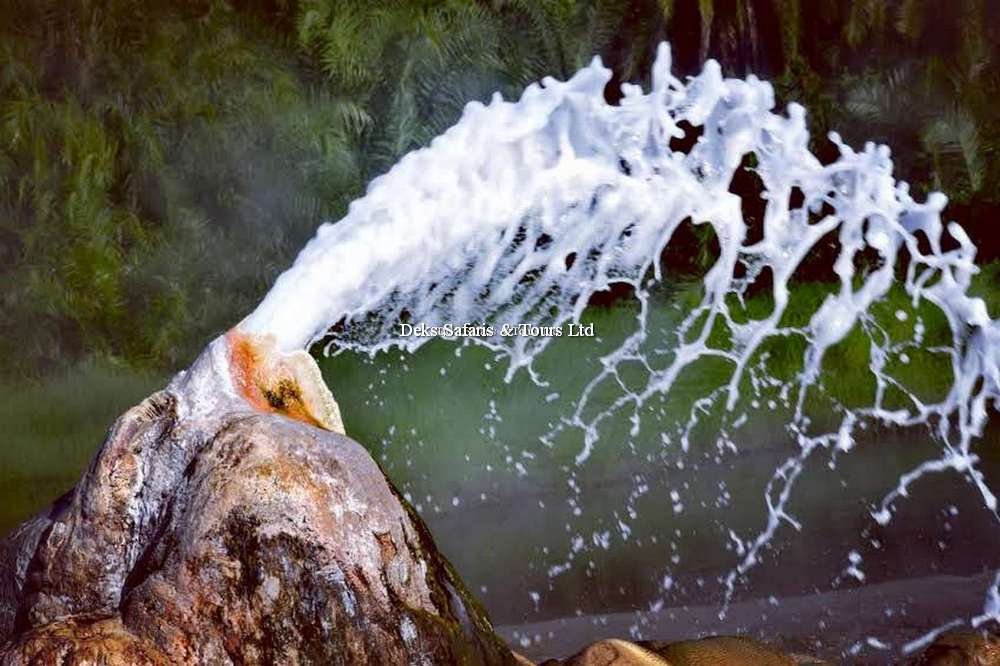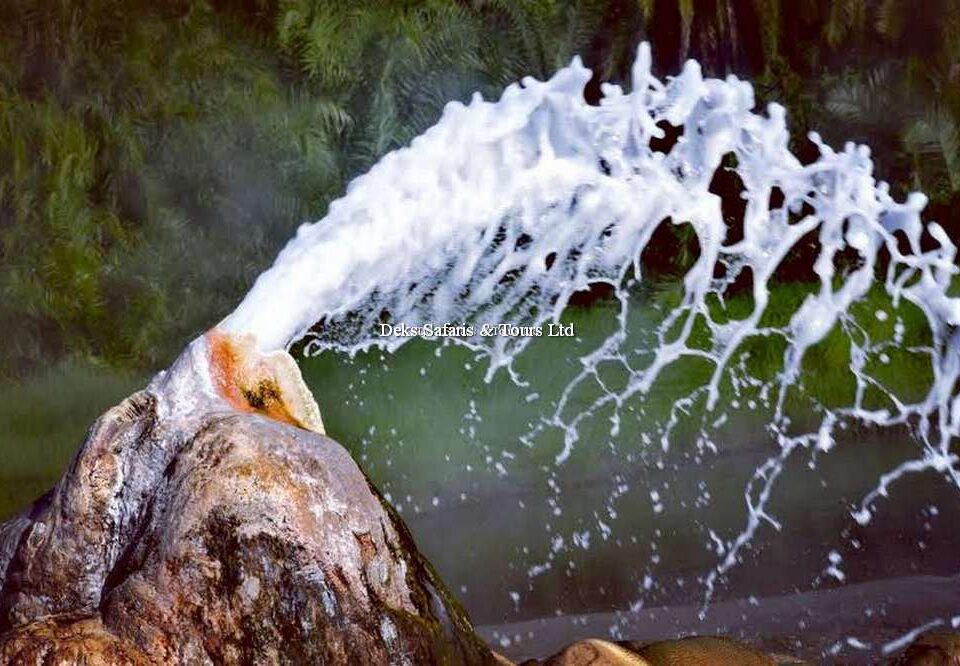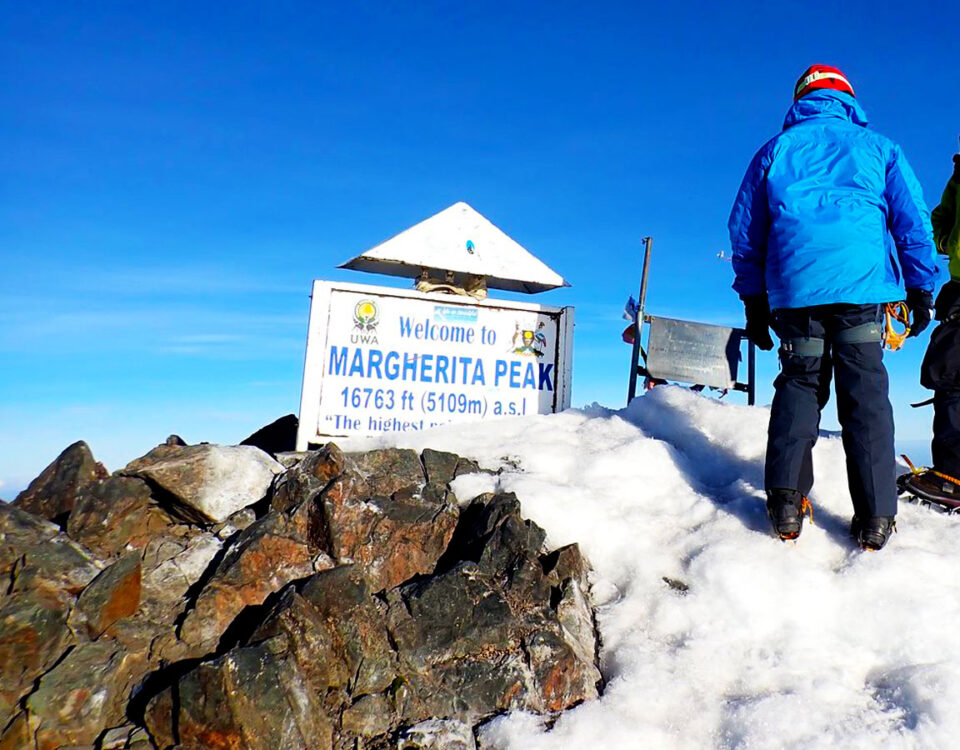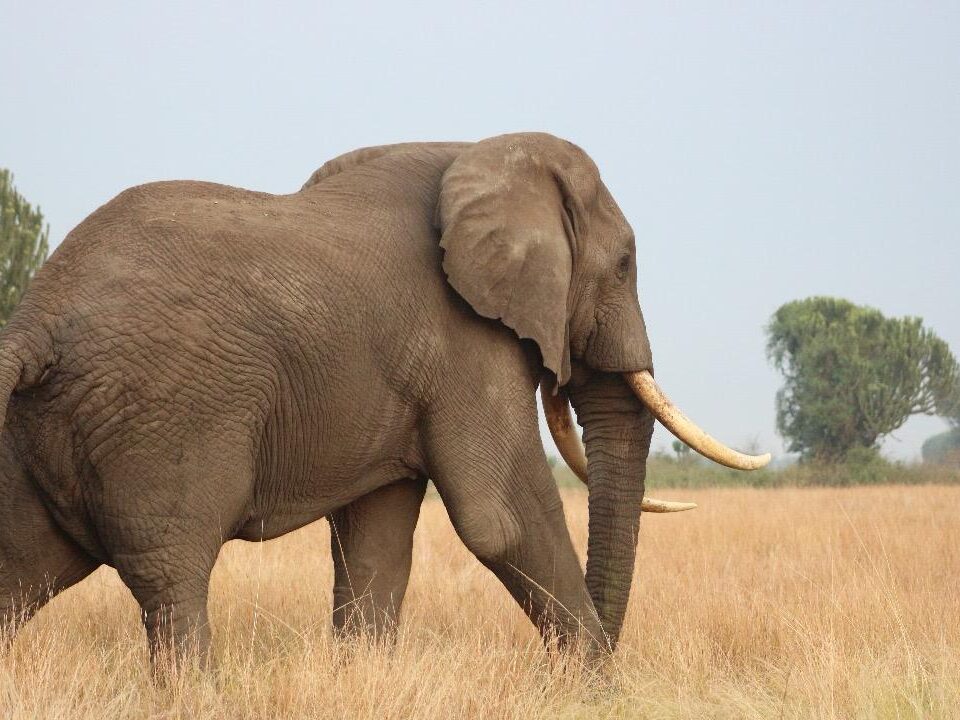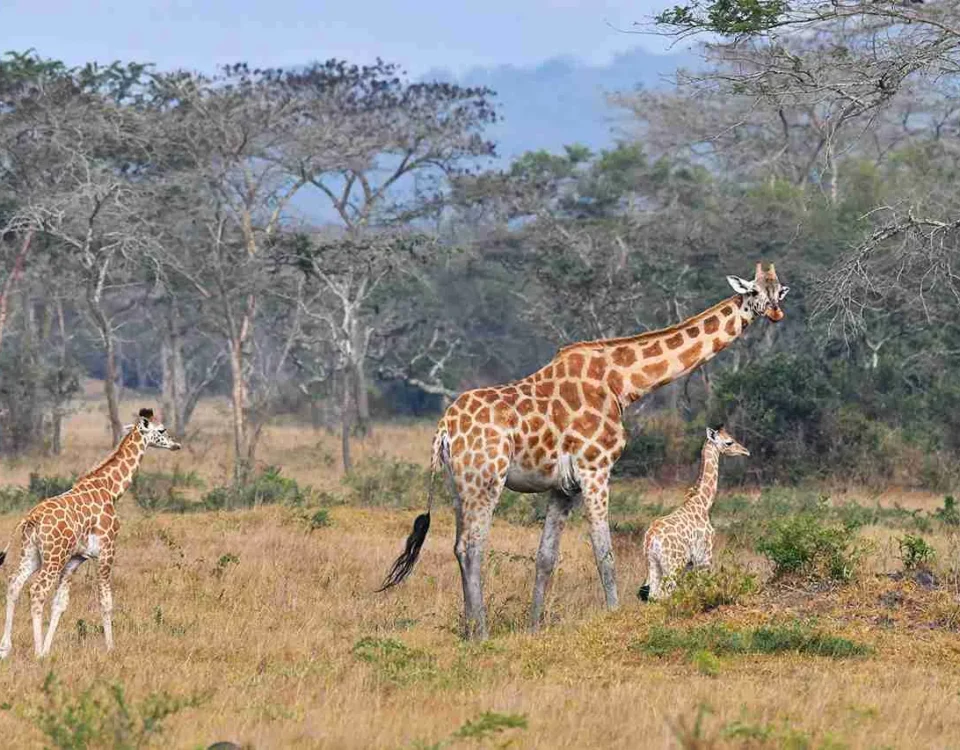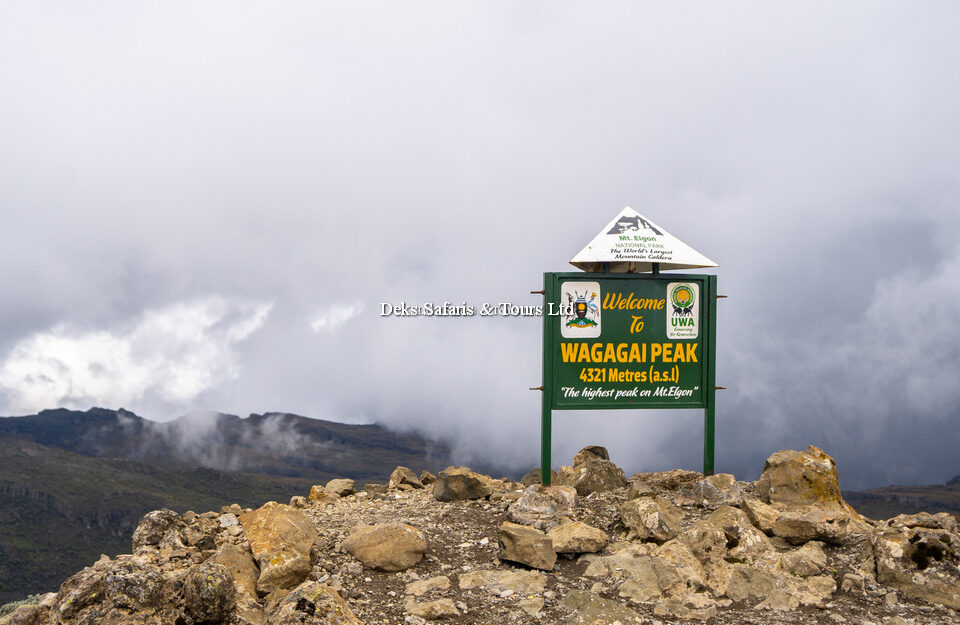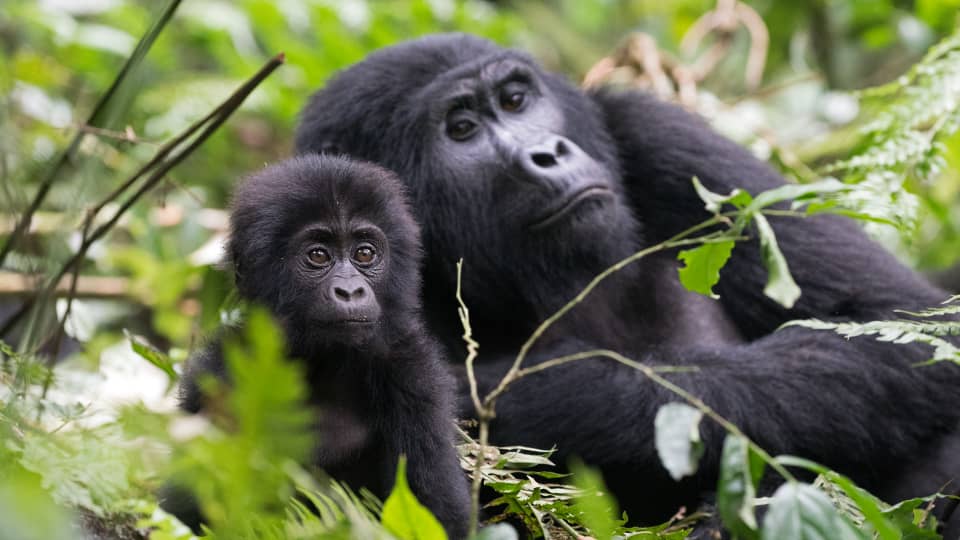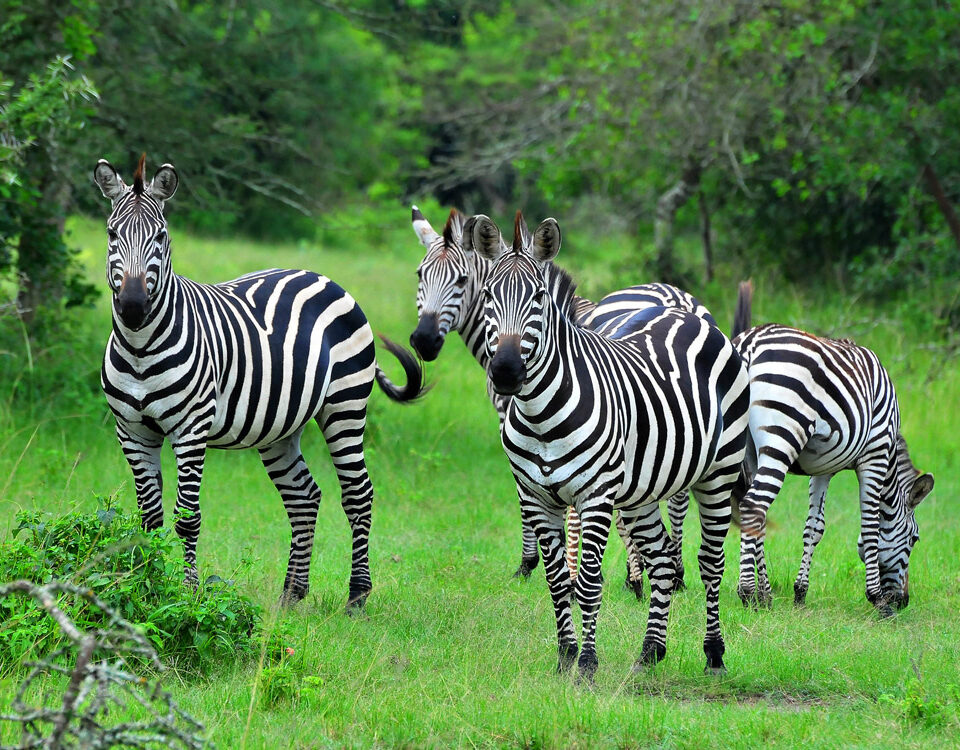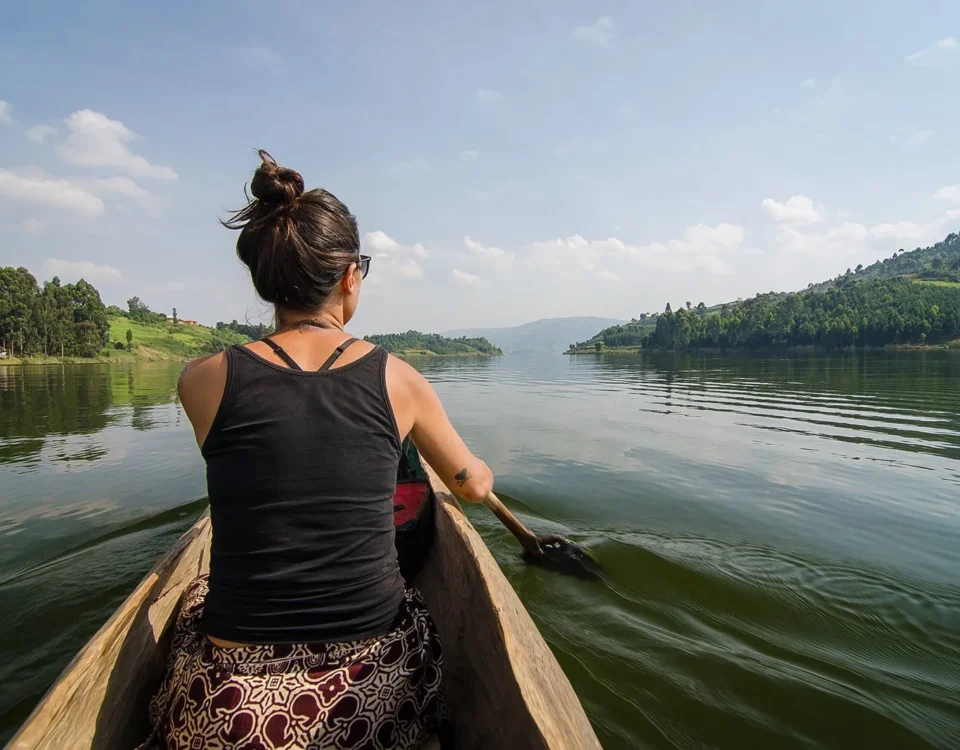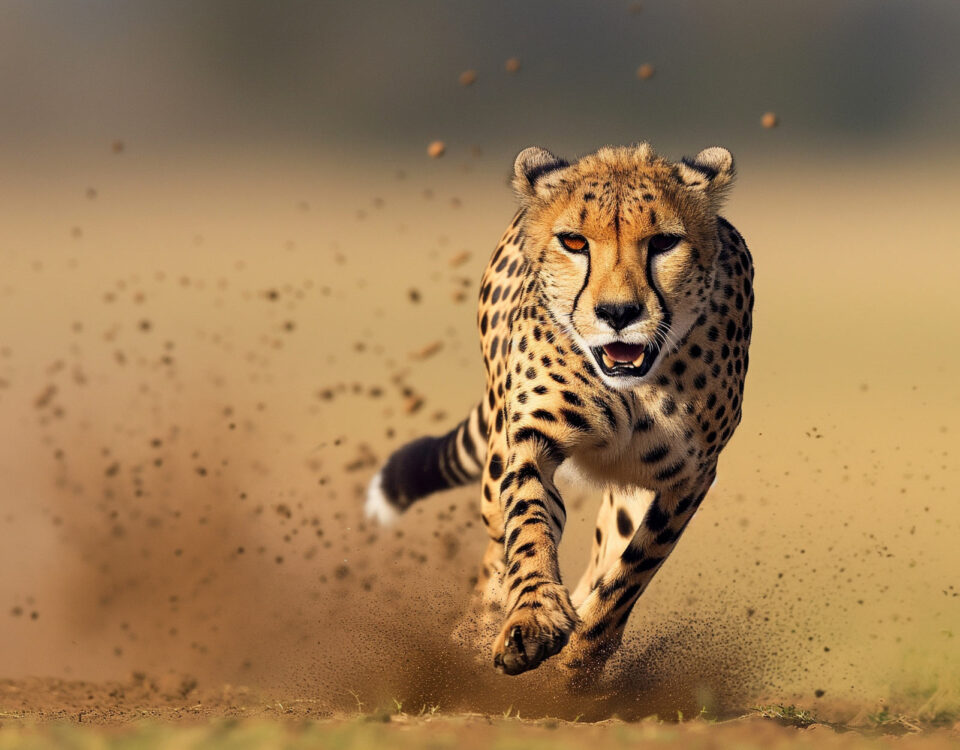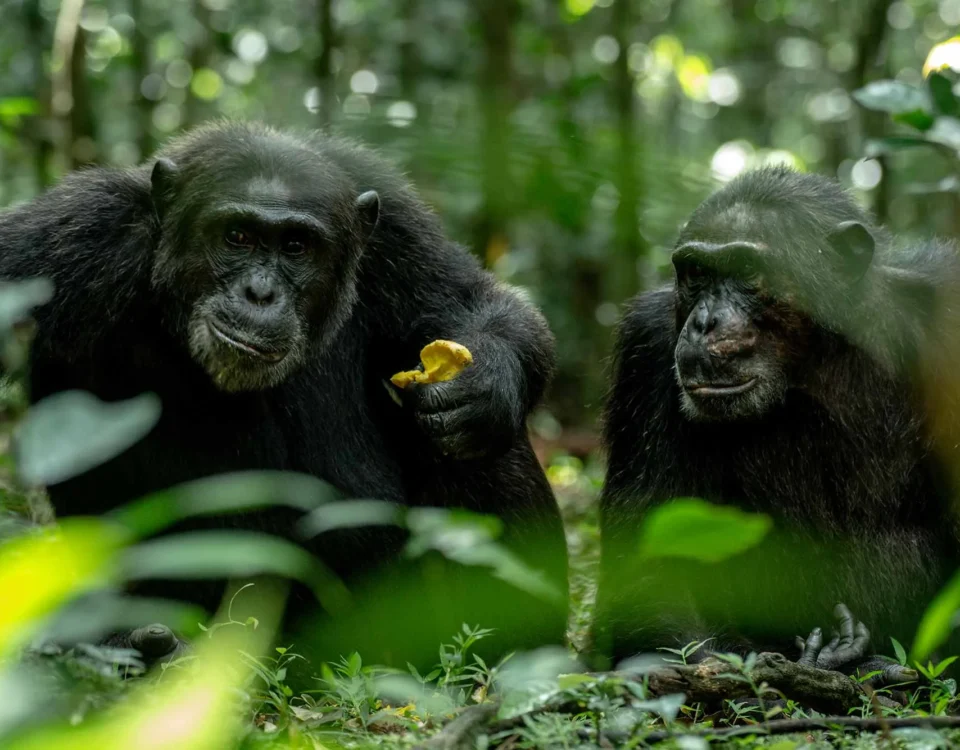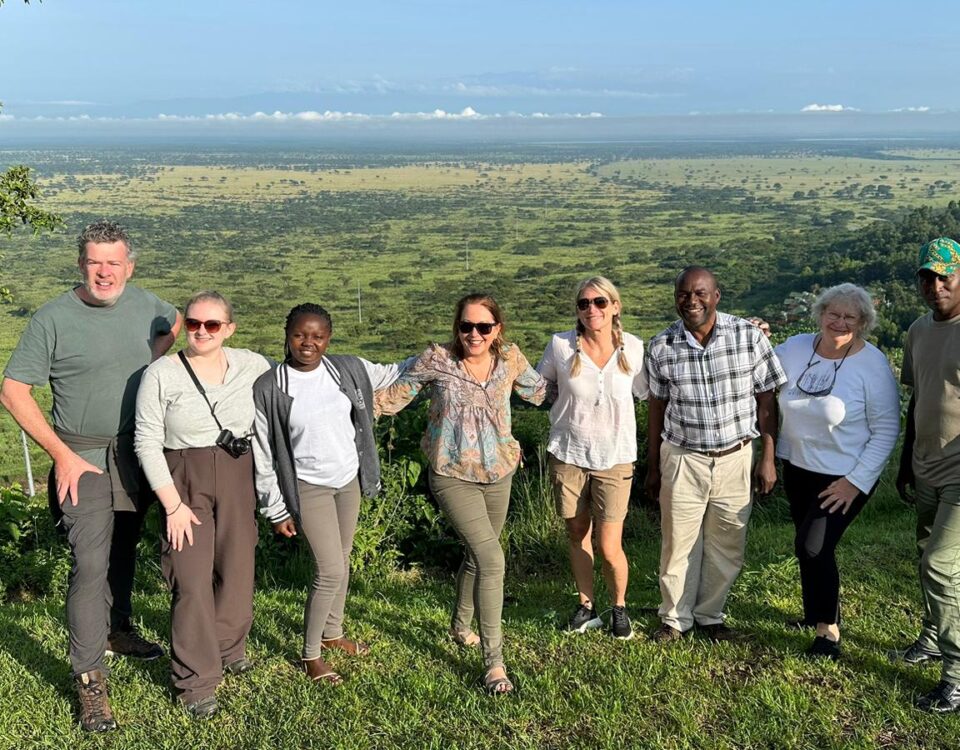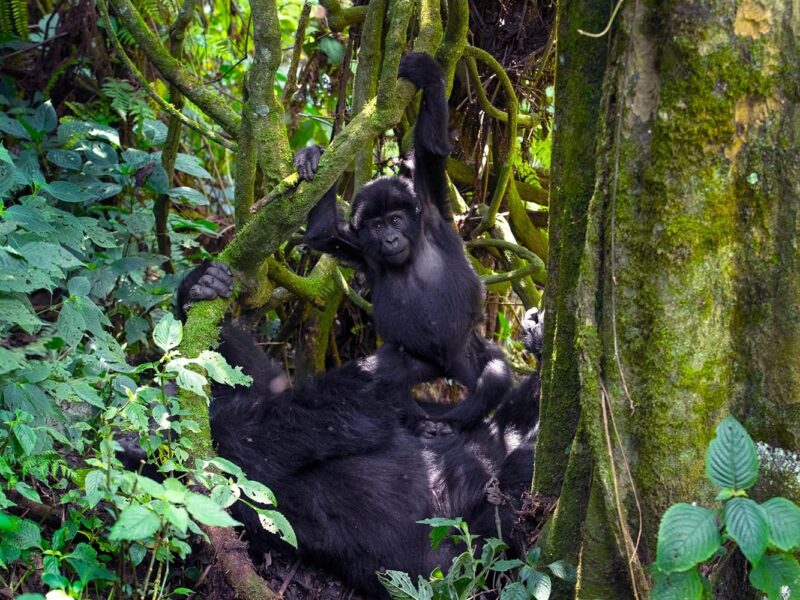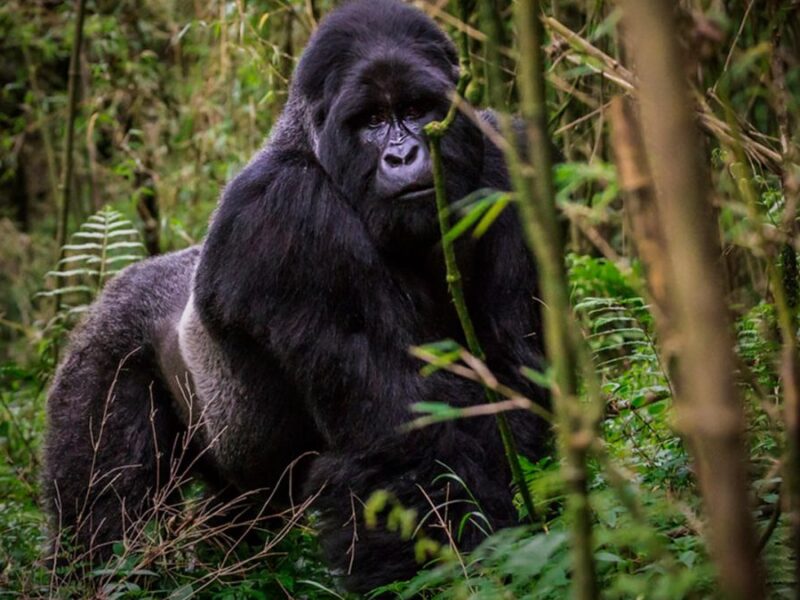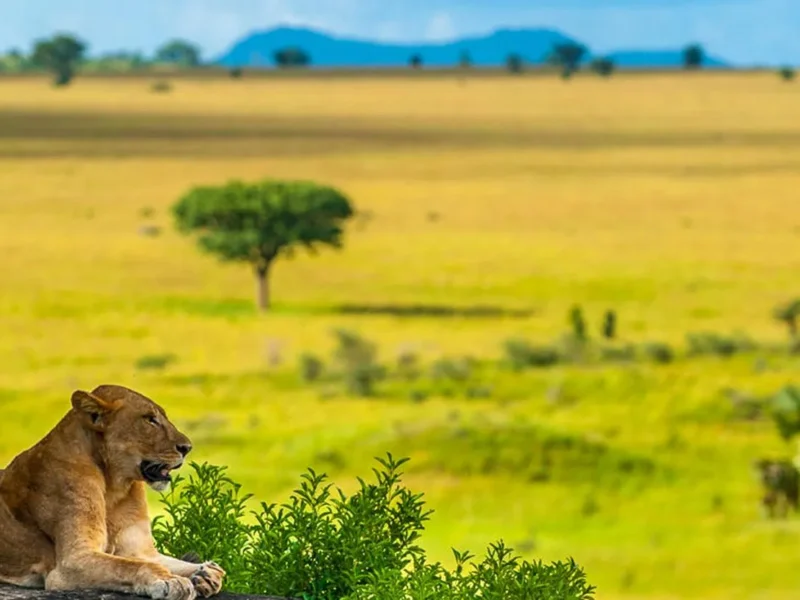Semuliki National Park: Uganda’s Hidden Gem of Biodiversity and Adventure
Nestled in the western part of Uganda, Semuliki National Park is a lesser-known but incredibly rich gem of biodiversity and adventure. Established in 1993, this park is part of the Albertine Rift, a region renowned for its unique flora and fauna. Covering approximately 219 square kilometers, Semuliki is a treasure trove of tropical rainforest, hot springs, and diverse wildlife. Its location near the border with the Democratic Republic of the Congo enhances its ecological significance and offers unparalleled opportunities for nature enthusiasts and adventure seekers alike.
Exploring Semuliki: A Rich Tapestry of Ecosystems
Semuliki National Park is distinguished by its diverse ecosystems, which include tropical rainforest, wetlands, and savannah. The park’s rainforest, part of the western arm of the East African Rift, is one of the most ancient and biodiverse in Africa. The forest is characterized by dense vegetation, tall trees, and a rich undergrowth, creating an ideal habitat for a variety of wildlife species. The park’s wetlands, including the Semuliki River and its associated swamps, contribute to its ecological diversity, supporting unique flora and fauna that thrive in these waterlogged environments. The combination of these ecosystems makes Semuliki a key destination for observing rare and endemic species, as well as experiencing diverse landscapes.
Wildlife Encounters: A Haven for Rare Species
Semuliki National Park is home to a remarkable array of wildlife, including several rare and endemic species. One of the park’s most notable inhabitants is the Pottos, a nocturnal primate known for its distinctive appearance and secretive nature. The park also boasts a variety of primates, including the red-tailed monkey and the black-and-white colobus. Birdwatchers will find Semuliki particularly rewarding, as it is home to over 400 bird species, including the rare and elusive shoebill stork, which is often seen in the park’s wetlands. Additionally, Semuliki is known for its unique pygmy hippos, which inhabit the dense forest areas. The diversity of wildlife in Semuliki provides an exceptional opportunity for wildlife enthusiasts and photographers to witness rare and fascinating creatures in their natural habitats.
The Splendor of Hot Springs: Natural Wonders of Semuliki
One of the park’s standout features is its collection of hot springs, which are located in the northeastern part of Semuliki. The Sempaya Hot Springs, comprising the “Female” and “Male” springs, are particularly striking. The “Female” spring is characterized by its boiling water, which erupts in spectacular bursts, while the “Male” spring produces a more gentle, steaming flow. These geothermal features are not only visually impressive but also offer insights into the geological processes that shape the region. Visitors can take guided tours to the hot springs, where they can learn about the area’s geothermal activity and enjoy the unique experience of witnessing boiling water in a tropical rainforest setting.
Birdwatching in Semuliki: A Bird Lover’s Paradise
Semuliki National Park is a prime destination for birdwatching, thanks to its diverse habitats and high avian species count. The park’s varied environments, from dense rainforests to open wetlands, provide ideal conditions for a wide range of bird species. Among the notable birds found in Semuliki are the endemic and rare species such as the Great Blue Turaco, the Black-casqued Wattled Hornbill, and the White-cheeked Hornbill. The park’s birdwatching trails, including those around the hot springs and forest edges, offer excellent opportunities for spotting these and other unique bird species. Guided birdwatching tours enhance the experience, providing expert knowledge on bird identification and behavior, and ensuring that visitors can fully appreciate the avian diversity of the park.
Cultural Encounters: Engaging with Local Communities
Visiting Semuliki National Park also provides an opportunity to engage with local communities and learn about their cultural heritage. The park is situated near several indigenous communities, including the Bakonjo people, who have traditional ties to the land. Cultural tours can include visits to local villages, where visitors can experience traditional music, dance, and crafts. These interactions offer valuable insights into the local way of life and the cultural significance of the natural environment. Engaging with local communities enriches the overall experience, highlighting the connection between the park’s natural beauty and the cultural traditions of its inhabitants.
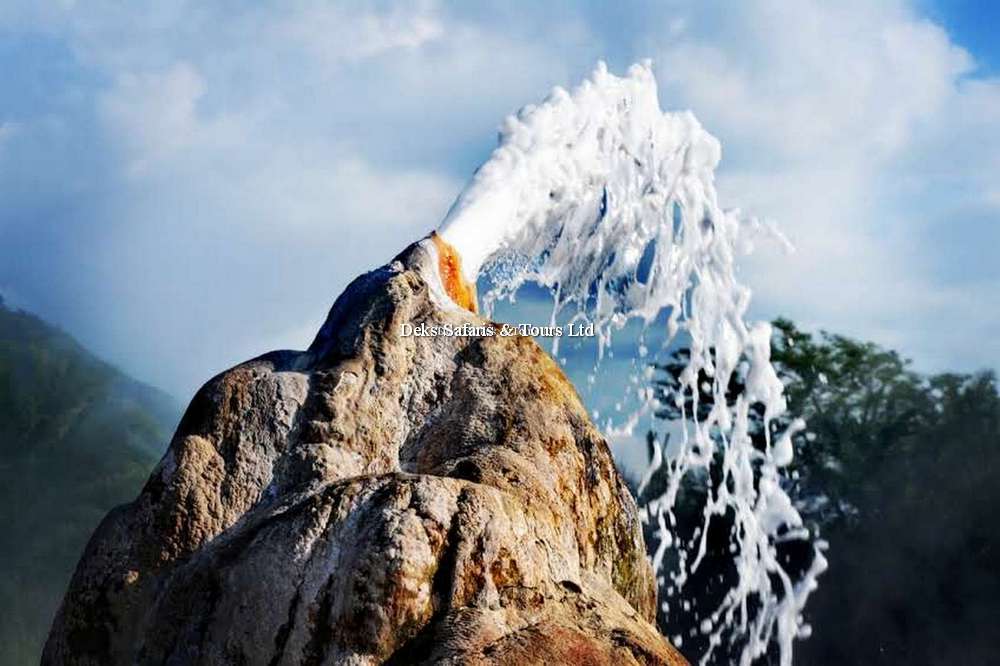
Uganda Adventure Safari Experience
Comparative Adventure Experiences: Exploring Africa’s Iconic National Parks
While Semuliki National Park offers a unique and enriching adventure experience, several other iconic national parks across Africa provide equally captivating opportunities for exploration and adventure. Each park presents its own distinct landscapes and wildlife encounters, contributing to Africa’s reputation as a premier destination for adventure tourism:
- Bwindi Impenetrable National Park, Uganda: Known for its mountain gorillas, Bwindi is a top destination for gorilla trekking. The park’s dense forest and mountainous terrain offer challenging hikes and the chance to encounter these magnificent primates up close.
- Serengeti National Park, Tanzania: Famous for the Great Migration and vast savannahs, Serengeti is ideal for game viewing and witnessing large herds of wildebeest, zebras, and predators in their natural habitat.
- Masai Mara National Reserve, Kenya: Renowned for its high concentration of big game and the annual wildebeest migration, the Masai Mara offers exceptional game drives and cultural experiences with the Maasai people.
- Ngorongoro Crater, Tanzania: This UNESCO World Heritage site features a unique caldera that supports a rich variety of wildlife, including the Big Five. The crater’s geological and ecological features make it a fascinating destination for wildlife enthusiasts.
- Volcanoes National Park, Rwanda: Known for its mountain gorilla trekking and volcanic landscapes, Volcanoes National Park offers thrilling encounters with gorillas and the chance to explore the surrounding volcanic terrain.
- Chobe National Park, Botswana: Famous for its large elephant populations and diverse habitats, Chobe offers excellent wildlife viewing opportunities, including boat safaris along the Chobe River.
- Okavango Delta, Botswana: A unique inland delta, the Okavango offers diverse wildlife experiences, including mokoro (canoe) safaris through its maze of waterways and lagoons.
Conservation and Sustainable Tourism: Protecting Semuliki’s Natural Heritage
Conservation is a critical aspect of preserving Semuliki National Park’s unique ecosystems and wildlife. The park’s management, in collaboration with conservation organizations, works to address challenges such as habitat degradation, poaching, and human-wildlife conflict. Conservation efforts include anti-poaching initiatives, habitat restoration projects, and community engagement programs. Visitors to Semuliki can contribute to these efforts by participating in eco-friendly tourism practices and supporting conservation initiatives. Sustainable tourism helps ensure that the park’s natural and cultural heritage is preserved for future generations while providing economic benefits to local communities.
Practical Information: Planning Your Visit to Semuliki
When planning a visit to Semuliki National Park, it is important to consider several practical aspects to ensure a smooth and enjoyable experience. The best time to visit is during the dry season, from June to August and December to February, when access to the park is easier and wildlife viewing is optimal. Accommodations near the park range from budget lodges to mid-range options, providing a variety of choices for visitors. Guided tours and activities, including birdwatching and hot springs visits, should be booked in advance to secure availability. Additionally, visitors should be prepared for the park’s tropical climate, which includes high humidity and occasional rain. Proper clothing and gear, including waterproofs and comfortable hiking shoes, are essential for navigating the park’s diverse terrain.
Conclusion: Unveiling the Wonders of Semuliki National Park
Semuliki National Park offers a captivating blend of biodiversity, natural beauty, and adventure opportunities. From its ancient rainforests and geothermal wonders to its rich wildlife and cultural experiences, the park provides a unique and enriching destination for nature lovers and adventure seekers. As a hidden gem in Uganda’s national park system, Semuliki offers a chance to explore some of Africa’s most fascinating ecosystems and encounter rare and endemic species in their natural habitats. A visit to Semuliki National Park promises an unforgettable journey, showcasing the park’s natural splendor and the vibrant diversity of Uganda’s western region.
- All
- Africa Safaris
- Botswana Safari Destinations
- Botswana Safaris
- Burundi Safari Destinations
- Burundi Safaris
- Bwindi Gorilla Trekking Safari
- DR Congo Safaris
- Kenya Safari Destinations
- Kenya Safaris
- Namibia Safari Destinations
- Namibia Safaris
- Rwanda Safari Destinations
- Rwanda Safaris
- Seychelles Safaris
- South Africa Safari Destinations
- South Africa Safaris
- Tanzania Safari Destinations
- Tanzania Safaris
- Uganda Gorilla Trekking
- Uganda Safari Destinations
- Uganda Safaris
- Zambia Safaris
- Zanzibar Safaris

